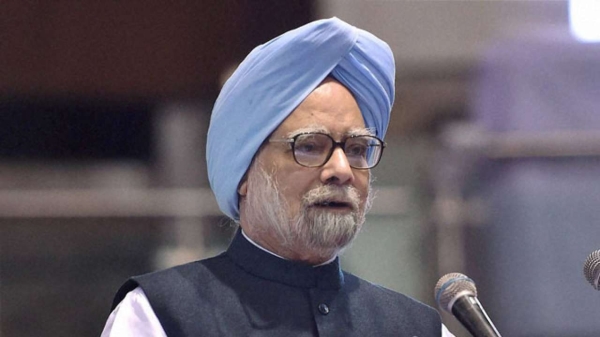Manmohan Singh birthday: Five major reforms by former PM of India
Economic liberalization (1991) As Finance Minister in 1991, Dr. Singh played a pivotal role in liberalizing the Indian economy. The reforms included reducing
- by B2B Desk 2023-09-26 06:49:54
Dr. Manmohan Singh, who celebrates his 90th birthday today, was India's 13th Prime Minister. Prior to his tenure as Prime Minister, Singh held the position of India's finance minister of India from 1991 to 1996.
Although many members of the younger generation recognize Singh primarily as a former Prime Minister, it is crucial to acknowledge his invaluable contributions during his tenure as the Finance Minister.
During this period, he played a pivotal role in steering the Indian economy away from the constraints of the socialist economy associated with the Nehru era. On his birthday, let's reflect on some of the key policy decisions that played a transformative role in shaping the Indian economy.

Economic liberalization (1991)
As Finance Minister in 1991, Dr. Singh played a pivotal role in liberalizing the Indian economy. The reforms included reducing trade barriers, dismantling the License Raj system, and opening up key sectors to foreign investment. These reforms kick-started India's economic growth and globalization.
Pradhan Mantri Gram Sadak Yojana (PMGSY) (2000)
The Pradhan Mantri Gram Sadak Yojana (Prime Minister's Rural Roads Programme) was initiated in 2000 when Dr. Manmohan Singh served as the Finance Minister. This initiative aims to provide all-weather road connectivity to rural regions, with the aim of fostering rural development and enhancing accessibility and connectivity.
These represent only a selection of significant decisions and initiatives connected to Dr. Manmohan Singh's role as Prime Minister of India and a prominent figure in the Indian government. His tenure witnessed significant progress in economic policy, diplomatic relations, social welfare and enhancement of infrastructure.
National Rural Employment Guarantee Act (NREGA) (2005)
Under the leadership of Dr. Manmohan Singh, the government introduced the National Rural Employment Guarantee Act in 2005, which was later renamed the Mahatma Gandhi National Rural Employment Guarantee Act (MGNREGA). This social welfare initiative was designed to offer a legal assurance of a minimum of 100 days of employment per year to rural families, with the overall goal of addressing rural poverty and unemployment.
Right to Information (RTI) Act (2005)
During Dr. Manmohan Singh's time in office, the enactment of the Right to Information Act represented a substantial piece of legislation. This law gives Indian citizens the power to request information from government agencies and institutions and serves as a critical tool for improving transparency, and accountability and reducing corruption within public administration.
Indo-US Civil Nuclear Agreement (2005)
Dr. Manmohan Singh's notable foreign policy initiative was the Indo-US Civil Nuclear Agreement, often referred to as the 123 Agreement.
This historic accord facilitated civil nuclear cooperation between India and the United States, granting India access to nuclear technology and fuel for its civil nuclear energy program. This was achieved even though India was not a signatory to the Nuclear Non-Proliferation Treaty (NPT).
Also Read: Rs 290 Crore GST Notice To LIC? How Insurance Behemoth Responded
POPULAR POSTS
Loan EMIs to Drop as RBI Slashes Repo Rate - Full MPC December 2025 Highlights
by Shan, 2025-12-05 11:49:44
Zoho Mail vs Gmail (2025): Which Email Platform Is Best for Businesses, Startups, and Students?
by Shan, 2025-10-09 12:17:26
PM Modi Launches GST Bachat Utsav: Lower Taxes, More Savings for Every Indian Household
by Shan, 2025-09-24 12:20:59
$100K H-1B Visa Fee Explained: Trump’s New Rule, Clarifications & Impact on Indian Tech Workers
by Shan, 2025-09-22 10:11:03
India-US Trade Deal Soon? Chief US Negotiator Arrives in Delhi as Talks Set to Begin Tomorrow
by Shan, 2025-09-15 11:54:28
Modi Meets Xi: Trump’s Tariffs, Strategic Autonomy, and the Future of Asia’s Power Balance
by Shan, 2025-09-03 06:40:06
Google Claims Gemini AI Uses Just ‘Five Drops of Water’ Per Prompt, Sparks Debate
by Shan, 2025-08-22 12:34:27
RECENTLY PUBLISHED

Pine Labs IPO 2025: Listing Date, Grey Market Premium, and Expert Outlook
- by Shan, 2025-11-05 09:57:07

The Agentic Revolution: Why Salesforce Is Betting Its Future on AI Agents
- by Shan, 2025-11-05 10:29:23

Top 10 Insurance Companies in India 2026: Life, Health, and General Insurance Leaders Explained
- by Shan, 2025-10-30 10:06:42

OpenAI Offers ChatGPT Go Free in India: What’s Behind This Big AI Giveaway?
- by Shan, 2025-10-28 12:19:11

Best Silver Investment Platforms for 2025: From CFDs to Digital Vaults Explained
- by Shan, 2025-10-23 12:22:46





 Subscribe now
Subscribe now 